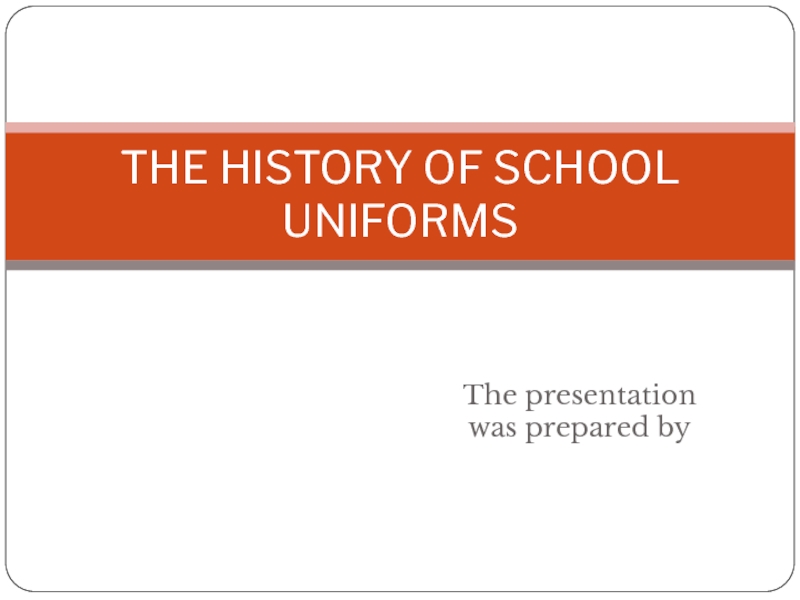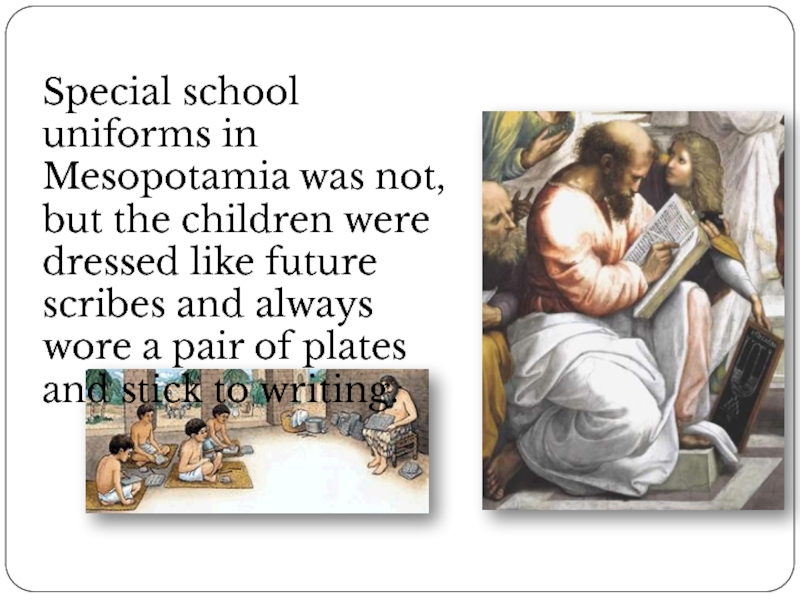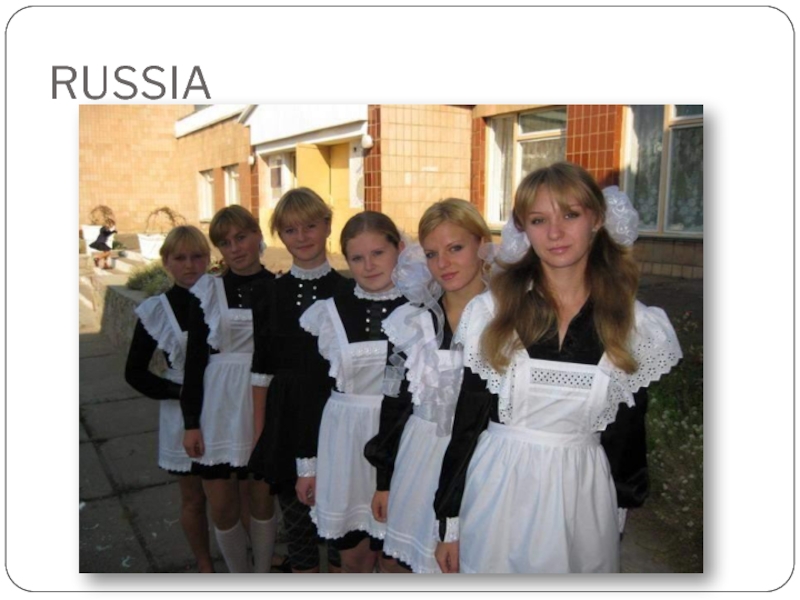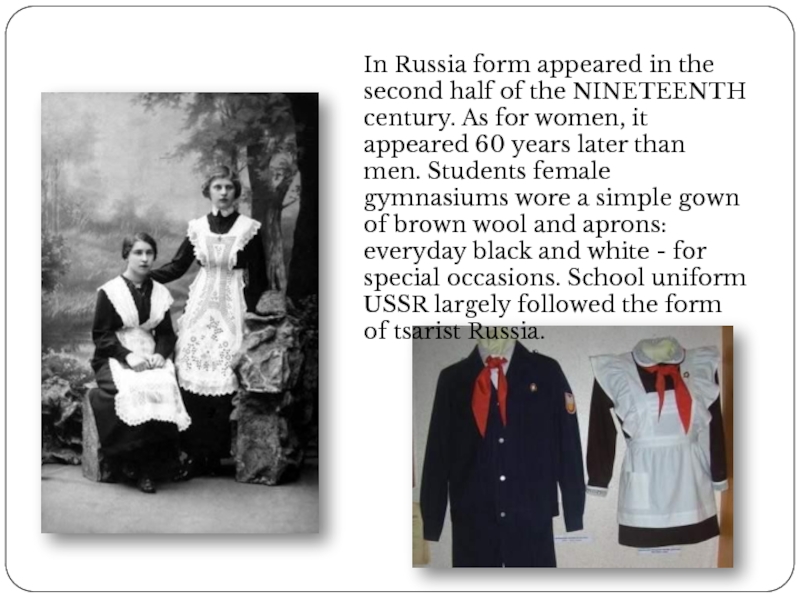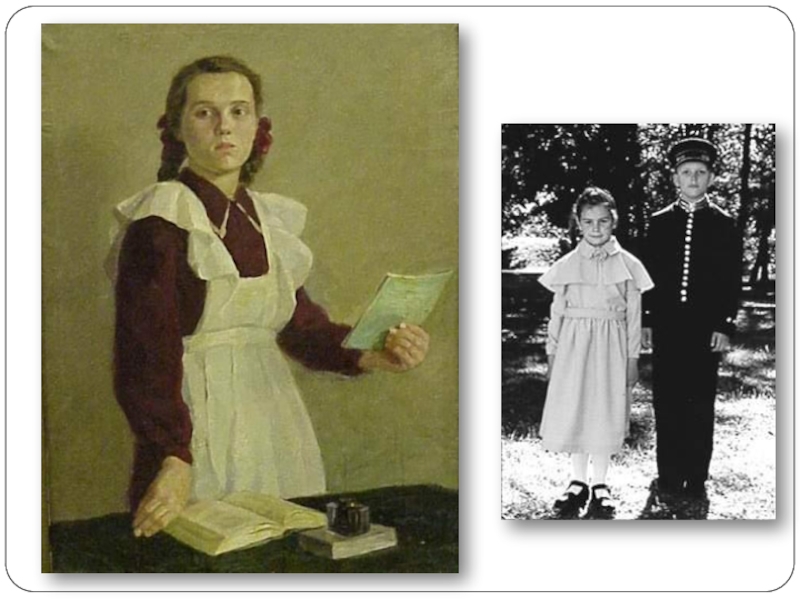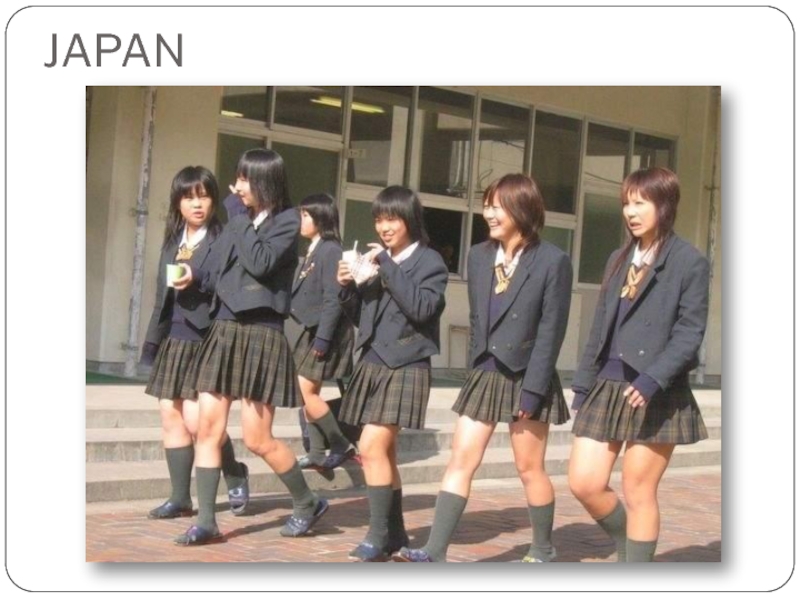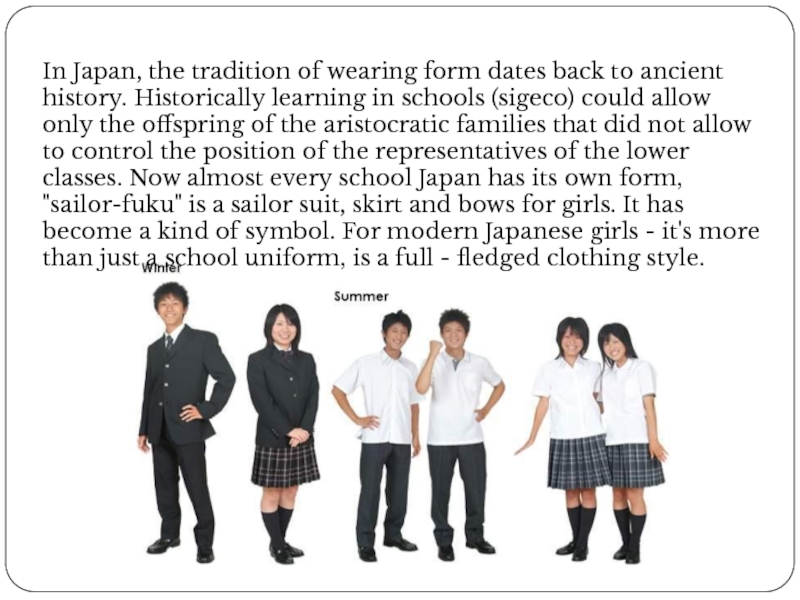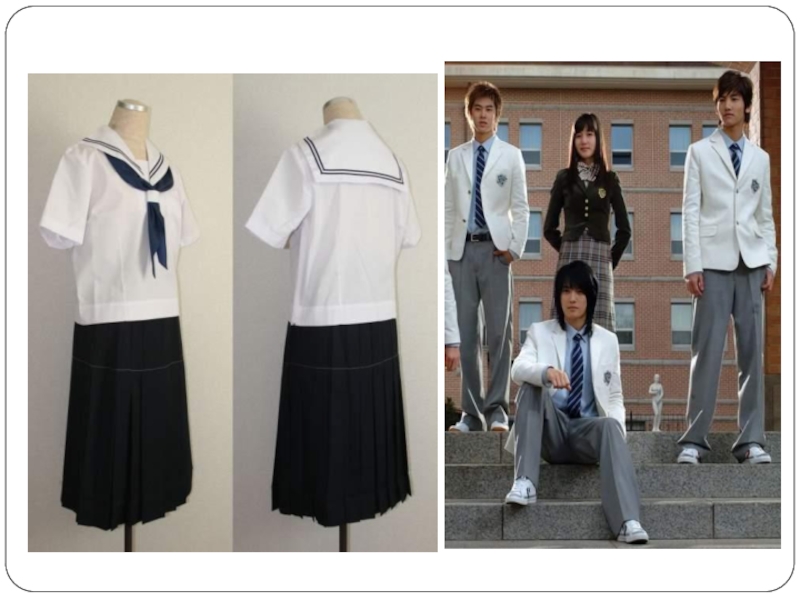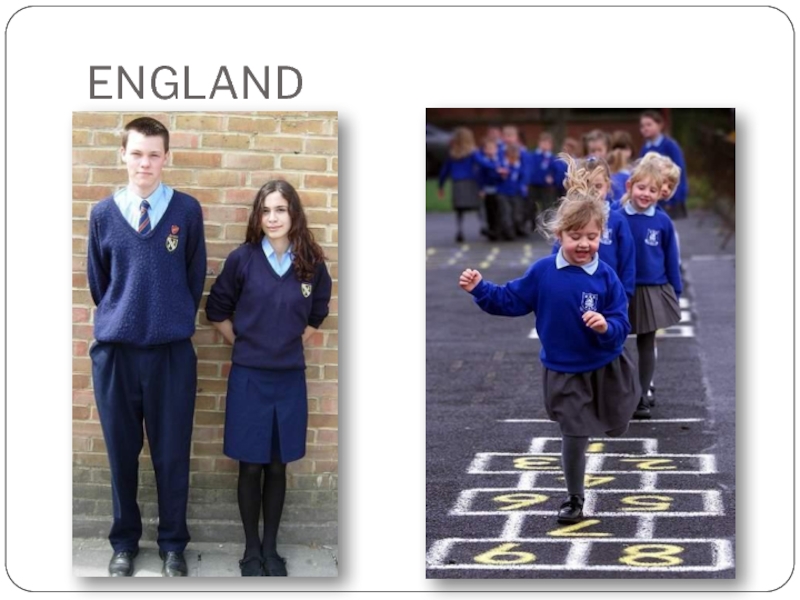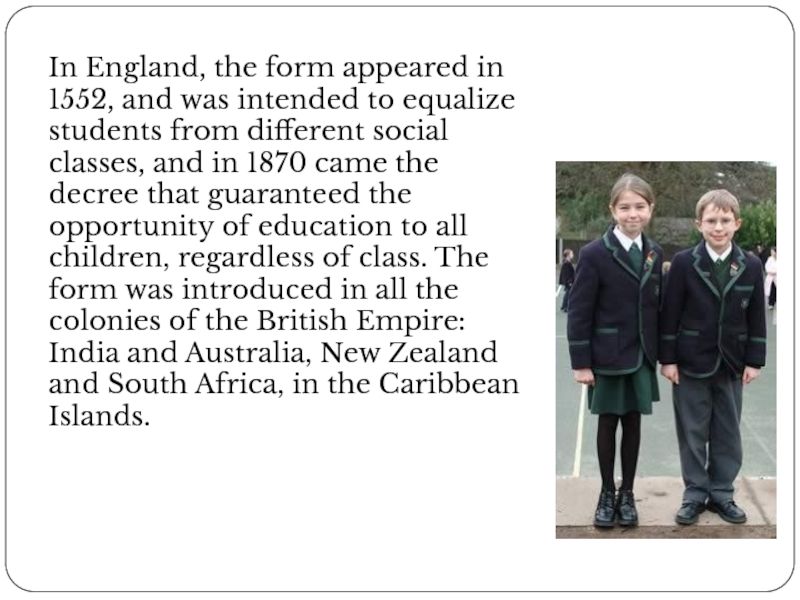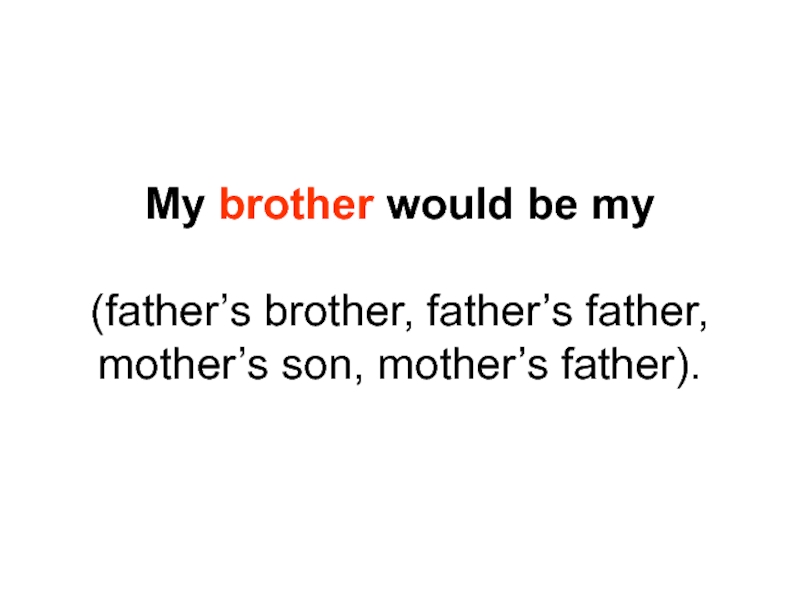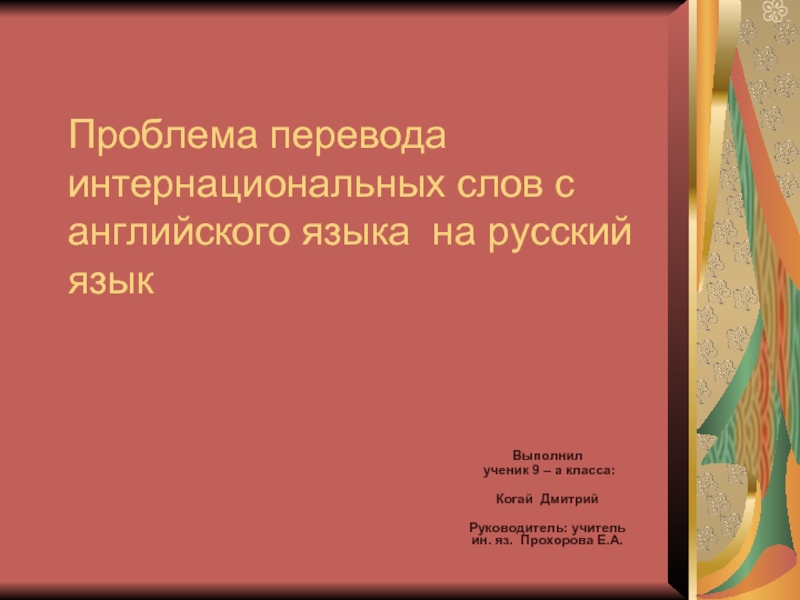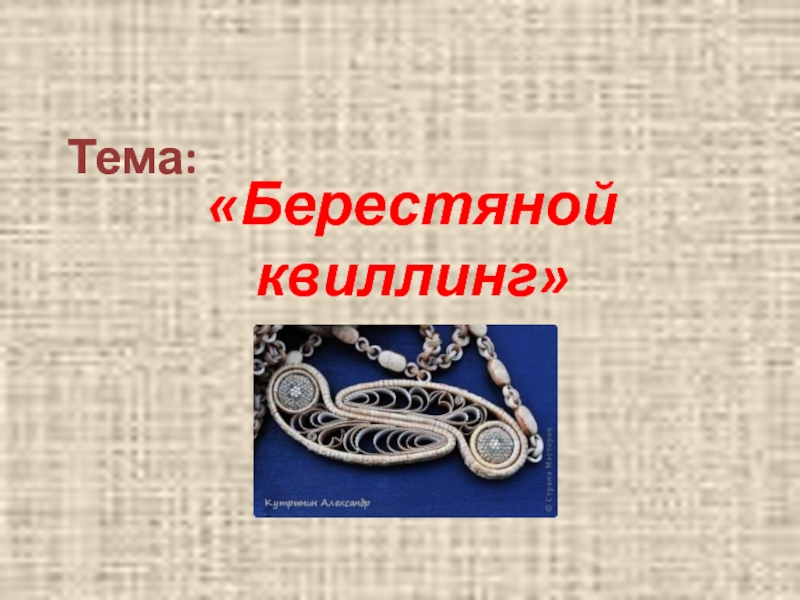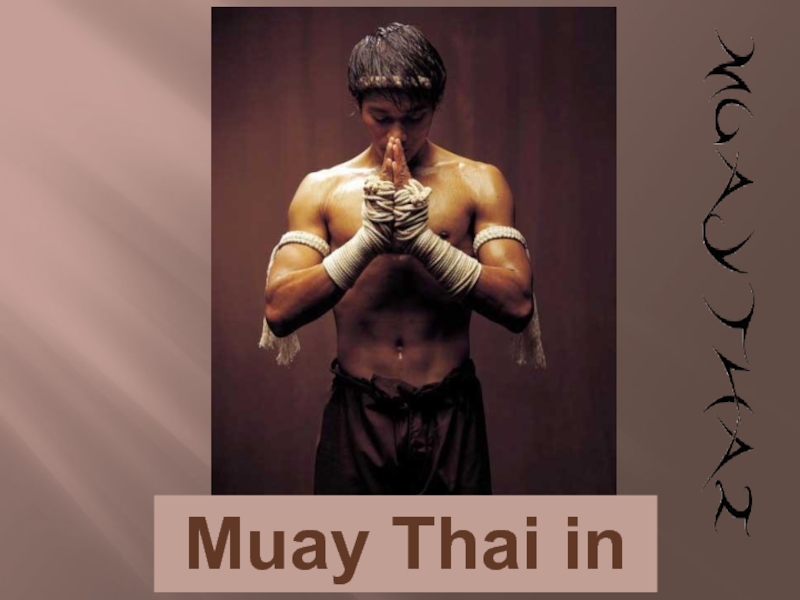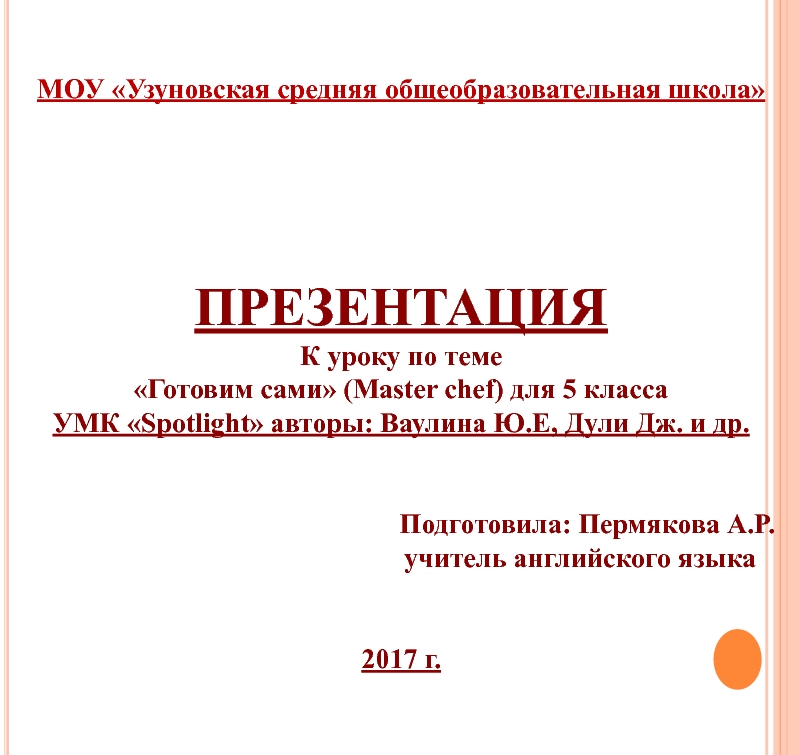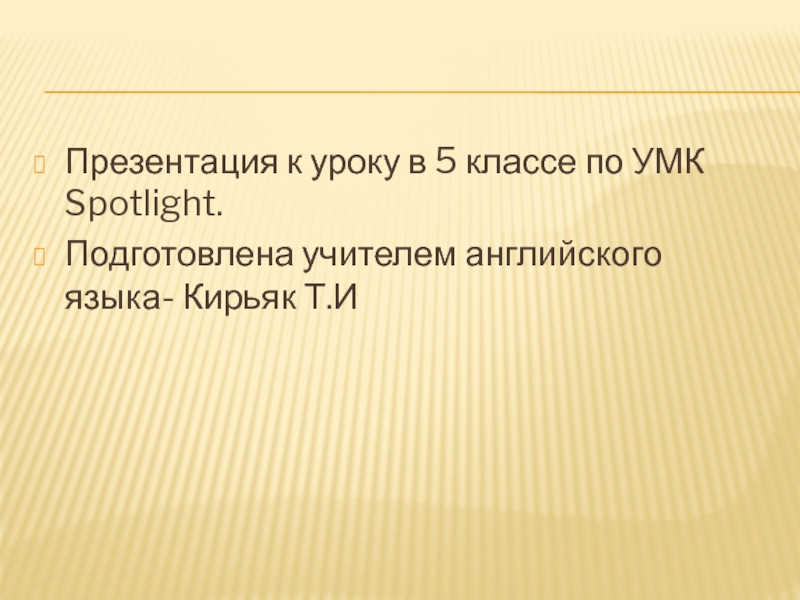Слайд 1The presentation was prepared by
THE HISTORY OF SCHOOL UNIFORMS
Слайд 3Special school uniforms in Mesopotamia was not, but the children
were dressed like future scribes and always wore a pair
of plates and stick to writing.
Слайд 5In Russia form appeared in the second half of the
NINETEENTH century. As for women, it appeared 60 years later
than men. Students female gymnasiums wore a simple gown of brown wool and aprons: everyday black and white - for special occasions. School uniform USSR largely followed the form of tsarist Russia.
Слайд 9In Japan, the tradition of wearing form dates back to
ancient history. Historically learning in schools (sigeco) could allow only
the offspring of the aristocratic families that did not allow to control the position of the representatives of the lower classes. Now almost every school Japan has its own form, "sailor-fuku" is a sailor suit, skirt and bows for girls. It has become a kind of symbol. For modern Japanese girls - it's more than just a school uniform, is a full - fledged clothing style.
Слайд 12In England, the form appeared in 1552, and was intended
to equalize students from different social classes, and in 1870
came the decree that guaranteed the opportunity of education to all children, regardless of class. The form was introduced in all the colonies of the British Empire: India and Australia, New Zealand and South Africa, in the Caribbean Islands.
Слайд 14In the United States the question on the form is
decided by each school individually, and often it is worn
only in prestigious private schools. This is usually a sweater in school colors with the logo.
